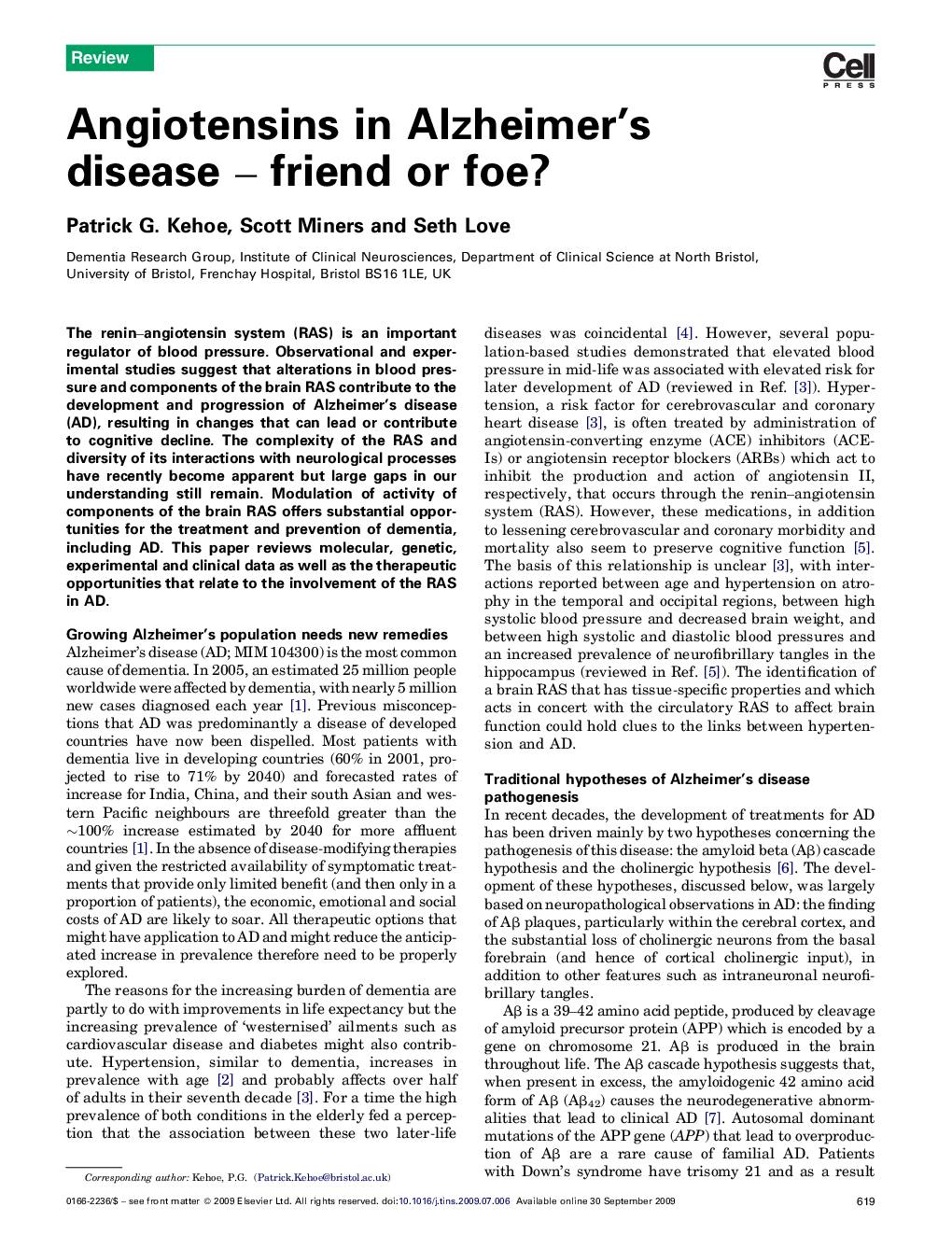| Article ID | Journal | Published Year | Pages | File Type |
|---|---|---|---|---|
| 4354532 | Trends in Neurosciences | 2009 | 10 Pages |
The renin–angiotensin system (RAS) is an important regulator of blood pressure. Observational and experimental studies suggest that alterations in blood pressure and components of the brain RAS contribute to the development and progression of Alzheimer's disease (AD), resulting in changes that can lead or contribute to cognitive decline. The complexity of the RAS and diversity of its interactions with neurological processes have recently become apparent but large gaps in our understanding still remain. Modulation of activity of components of the brain RAS offers substantial opportunities for the treatment and prevention of dementia, including AD. This paper reviews molecular, genetic, experimental and clinical data as well as the therapeutic opportunities that relate to the involvement of the RAS in AD.
